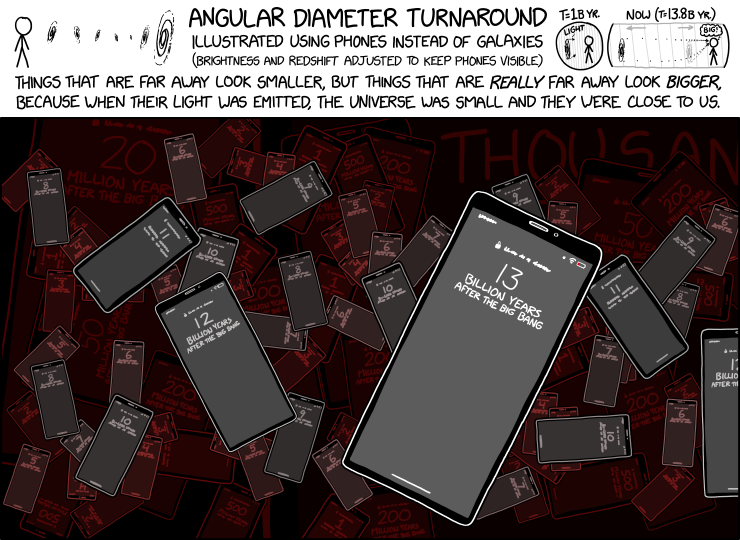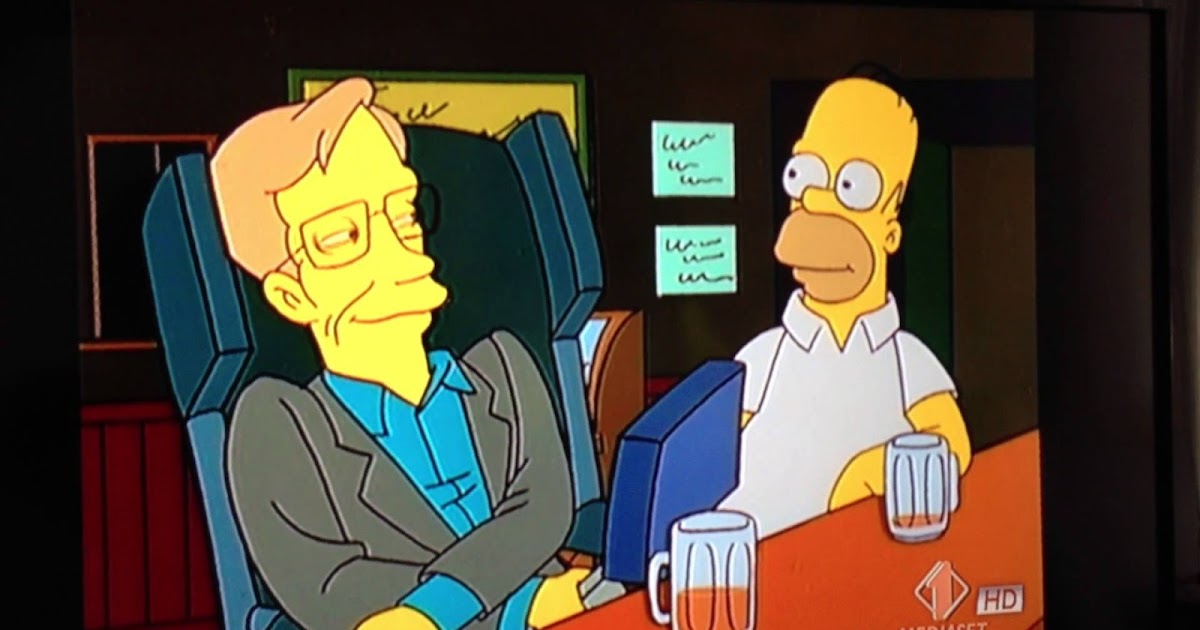Full release of photos to start tomorrow at 9:45 (talking about it) and picture release starting at 10:30
How to watch in this link https://www.nasa.gov/press-release/nasa-updates-coverage-for-webb-telescope-s-first-images-reveal

Full release of photos to start tomorrow at 9:45 (talking about it) and picture release starting at 10:30
How to watch in this link https://www.nasa.gov/press-release/nasa-updates-coverage-for-webb-telescope-s-first-images-reveal

Super cool. I hope we get to see some side by side photos from both Hubble and Webb of the same view so that we can really see the difference. ![]()
Edit: I downloaded the image and zoomed in as far as this computer can and It's pretty amazing that every little flicker of light, no matter how small that isn't a local star (the flares or star bursts) is a galaxy.
Wow! Those are galaxies all tilted in different directions? Can this telescope magnify individual star to check for planets? The comparison of different photos from the two we have sound interesting. And I just took the opportunity to see the Milky Way in a way I haven't seen in fourty years. Out in the sticks away from city lights. Seeing it that way again was very cool! :0)
MyMiatas said:Can this telescope magnify individual star to check for planets?
In the short presentation today, they think they can get planets.
They also mentioned that the images they're taking can be depicting what was happening a long, long time ago in the systems they're photographing.
Our technology of the future will enable us to study the past. When we finally are able to identify life, it will already will have likely passed away.
Here are two NASA photos of Hubble's views of the Universe for comparison:
The NASA Hubble Extreme Deep Field

And NASA Hubble Ultra Deep Field

Brett_Murphy (Agent of Chaos) said:MyMiatas said:Can this telescope magnify individual star to check for planets?
In the short presentation today, they think they can get planets.
They also mentioned that the images they're taking can be depicting what was happening a long, long time ago in the systems they're photographing.

MyMiatas said:Wow! Those are galaxies all tilted in different directions? Can this telescope magnify individual star to check for planets? The comparison of different photos from the two we have sound interesting. And I just took the opportunity to see the Milky Way in a way I haven't seen in fourty years. Out in the sticks away from city lights. Seeing it that way again was very cool! :0)
I saw a Instagram Reel with Neil deGrasse Tyson, who spoke about the image.
The galaxies you see that appear kind of flattened, in the shape of arcs, are that way because of a super cluster of galaxies in between us and them. They got distorted from the gravity of that super cluster. It's why the galaxies also appear in a circular pattern.
The spiky-looking stars, they have diffraction spikes, which comes from the hardware inside the telescope because they're close (relatively) to us.
One interesting aspect of that first photo is a rather obvious lensing effect (flattening and warping from the curving of light by gravity) which appears to be caused by that rather fuzzy looking star (or cluster) in the middle of the photo. Something that will be a lot more common in the JW shots because they show so much.
There's a pic in this article you can slide left and right on to compare Hubble-vision to Webb-vision:
In reply to GameboyRMH :
Thanks for that link, I spent hours last night trying to find Hubble's view of galaxy cluster SMACS 0723, but to no avail. ![]() And just for E36 M3s and giggles, here is my sketch of what I think the Universe really is, a giant torus that is just expanding from the Big Bang and contracting into the Big Crunch.
And just for E36 M3s and giggles, here is my sketch of what I think the Universe really is, a giant torus that is just expanding from the Big Bang and contracting into the Big Crunch. ![]()

VolvoHeretic said:In reply to GameboyRMH :
Thanks for that link, I spent hours last night trying to find Hubble's view of galaxy cluster SMACS 0723, but to no avail.
And just for E36 M3s and giggles, here is my sketch of what I think the Universe really is, a giant torus that is just expanding from the Big Bang and contracting into the Big Crunch.
Fascinating concept...thank you very much for sharing it.
Do you suspect that mass & energy accumulate at the center of the big crunch point until it reaches some critical level that sets of the next big bang or do you suspect it's a continuous process where we we just go around and around forever or ???
Added later...
Maybe the Higgs Field follows the last mass ejected from the big bang producing a ribbon that follows the torus shape...thinking out loud but perhaps the presence of a Higgs Field somehow prevents a new universe from forming which causes the mass & energy to wait at the crunch point until the trailing edge Higgs Field ribbon closes into it; essentially a cosmic pulse jet.
Thoughts???
VolvoHeretic said:In reply to GameboyRMH :
Thanks for that link, I spent hours last night trying to find Hubble's view of galaxy cluster SMACS 0723, but to no avail.
And just for E36 M3s and giggles, here is my sketch of what I think the Universe really is, a giant torus that is just expanding from the Big Bang and contracting into the Big Crunch.

lol, yep, that's me, Homer Simpson. ![]() I just can't accept that the universe sprang from nothing and is just going to expand forever until it fizzes out. I guess I just believe in recycling.
I just can't accept that the universe sprang from nothing and is just going to expand forever until it fizzes out. I guess I just believe in recycling.
RX Reven' said:VolvoHeretic said:In reply to GameboyRMH :
Thanks for that link, I spent hours last night trying to find Hubble's view of galaxy cluster SMACS 0723, but to no avail.
And just for E36 M3s and giggles, here is my sketch of what I think the Universe really is, a giant torus that is just expanding from the Big Bang and contracting into the Big Crunch.
Fascinating concept...thank you very much for sharing it.
Do you suspect that mass & energy accumulate at the center of the big crunch point until it reaches some critical level that sets of the next big bang or do you suspect it's a continuous process where we we just go around and around forever or ???
Added later...
Maybe the Higgs Field follows the last mass ejected from the big bang producing a ribbon that follows the torus shape...thinking out loud but perhaps the presence of a Higgs Field somehow prevents a new universe from forming which causes the mass & energy to wait at the crunch point until the trailing edge Higgs Field ribbon closes into it; essentially a cosmic pulse jet.
Thoughts???
Lol, you lost me at Higgs Boson. I couldn't fight my way out of a wet paper bag with my knowledge of physics. I'm just assuming it's a continuous cycle driven by gravity. The only thing I do know is that it's all smoke and mirrors and just a big elusion. Just little force fields of energy that mimic solid objects.![]()
Edit: To clarify, it is us that is expanding away from the Big Bang singularity, not the other way around, the Big Bang racing away from us. I am just thinking that we are racing outward back to the singularity. Conservation of energy?
VolvoHeretic said:RX Reven' said:VolvoHeretic said:In reply to GameboyRMH :
Thanks for that link, I spent hours last night trying to find Hubble's view of galaxy cluster SMACS 0723, but to no avail.
And just for E36 M3s and giggles, here is my sketch of what I think the Universe really is, a giant torus that is just expanding from the Big Bang and contracting into the Big Crunch.
Fascinating concept...thank you very much for sharing it.
Do you suspect that mass & energy accumulate at the center of the big crunch point until it reaches some critical level that sets of the next big bang or do you suspect it's a continuous process where we we just go around and around forever or ???
Added later...
Maybe the Higgs Field follows the last mass ejected from the big bang producing a ribbon that follows the torus shape...thinking out loud but perhaps the presence of a Higgs Field somehow prevents a new universe from forming which causes the mass & energy to wait at the crunch point until the trailing edge Higgs Field ribbon closes into it; essentially a cosmic pulse jet.
Thoughts???
Lol, you lost me at Higgs Boson. I couldn't fight my way out of a wet paper bag with my knowledge of physics. I'm just assuming it's a continuous cycle driven by gravity. The only thing I do know is that it's all smoke and mirrors and just a big elusion. Just little force fields of energy that mimic solid objects.
Edit: To clarify, it is us that is expanding away from the Big Bang singularity, not the other way around, the Big Bang racing away from us. I am just thinking that we are racing outward back to the singularity. Conservation of energy?
Since it's broadly believed that the singularity was an infinitely small point, I think the only way to fit the entire universe into zero space is if information is actually what the universe is fundamentally made of. In other words, not "force fields of energy that mimic solid objects" but information telling things to have the appearance of mass and energy.
I think (probably too much) about tests that could be devised to detect information effects. If there are limitations on how much information a particle can contain, we may see some weird "classical physics violating" effects.
The two best effects I've imagined are what I call quantum probability and quantum angles...maybe it's not possible to have a probability and/or angle below a certain value because the particle isn't capable of containing that much information.
Some physicists believe that gravity is caused by expansion pressure...we aren't being pulled towards the earth due to a gravity well rather the earth is pushing up on us as it expands.
Thanks for sharing that info. I love science but then they have to throw in all of that pesky math and those equations and then not so much. ![]()
In reply to RX Reven' :
Well, the "speed of light" has been proven to actually be the "speed of information" or maybe "the speed of propagation". If the Sun disappeared this instant, for instance (heh), it would take eight minutes for the Earth's orbit to change. (Specifically, haul ass in a straight line, curving towards whatever gas giant was in the trajectory's vicinity)
In a way, this makes sense, since light has no "mass" therefore its speed should be infinite.
This makes quantum entanglement even more interesting.
You'll need to log in to post.